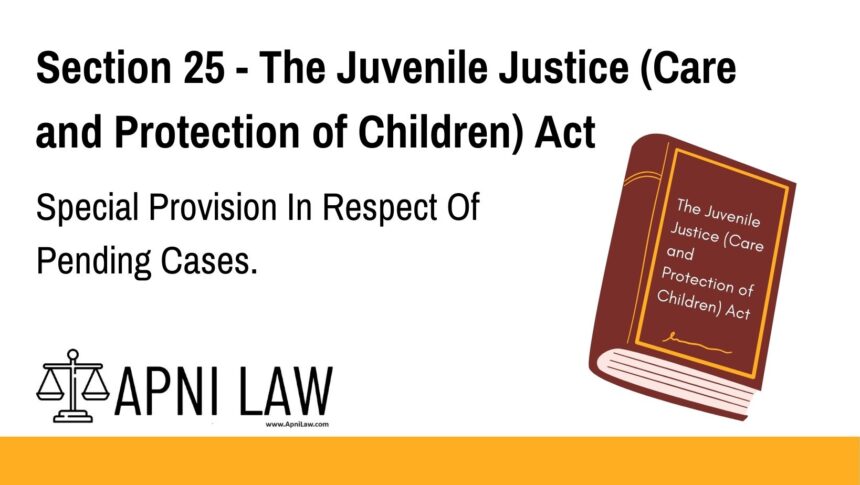Code
Notwithstanding anything contained in this Act, all proceedings in respect of a child alleged or found to be in conflict with law pending before any Board or court on the date of commencement of this Act, shall be continued in that Board or court as if this Act had not been enacted.
Explanation
Section 25 of the Juvenile Justice (Care and Protection of Children) Act functions as a transitional provision. It ensures that cases already in progress at the time of commencement of the new Act are not disrupted or invalidated due to the change in legislation.
Key highlights:
-
The section applies to all pending cases of juveniles in conflict with law, whether they are at the inquiry or trial stage.
-
The purpose is legal continuity: to avoid confusion, retrials, or jurisdictional conflict.
-
It prevents the retrospective application of the new Act to already ongoing proceedings, unless explicitly stated elsewhere in the Act.
This ensures that no legal vacuum or procedural disruption occurs during the legislative transition from the earlier law to the new Act.
Illustration
🔸 Example:
If a child’s case was pending before the Juvenile Justice Board on the day the new Act came into force, that case will continue under the provisions and procedures of the previous law, not the new one.
So, if the previous Act allowed for a certain procedure not found in the new law, the Board or Court would still follow that old procedure for that specific pending case.
Common Questions and Answers
Q1: Why is this provision necessary?
To maintain procedural consistency and ensure that children already involved in legal proceedings are not disadvantaged by sudden changes in law.
Q2: Does this mean the new Act has no effect on current cases?
For pending cases, yes. They are to be handled as if the new Act had not come into effect. However, any new cases after the commencement date will follow the new law.
Q3: What happens if there is a conflict between the old and new law in such a case?
The older law, under which the case began, will prevail for that proceeding unless the court decides otherwise in light of fairness or a specific direction.
Conclusion
Section 25 safeguards the principle of legal certainty and due process during legislative change. By continuing existing juvenile proceedings under the old legal regime, it avoids procedural confusion and ensures that justice remains consistent and fair. This transitional clause exemplifies the law’s commitment to orderly implementation, respecting both judicial efficiency and the rights of the child.








